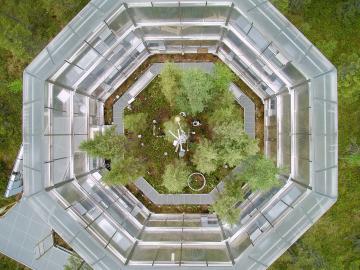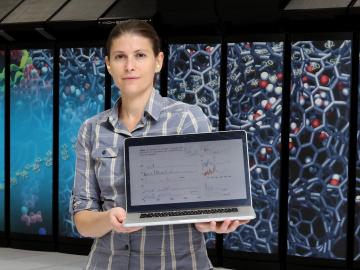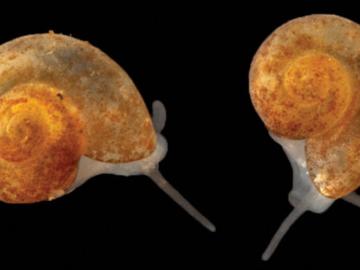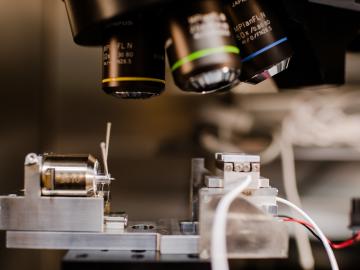
Filter News
Area of Research
News Type
News Topics
- (-) Biomedical (2)
- (-) Clean Water (1)
- (-) Climate Change (3)
- (-) Cybersecurity (3)
- (-) Isotopes (1)
- (-) Materials Science (9)
- (-) Polymers (2)
- 3-D Printing/Advanced Manufacturing (15)
- Advanced Reactors (2)
- Artificial Intelligence (4)
- Big Data (1)
- Bioenergy (9)
- Biology (1)
- Biotechnology (1)
- Chemical Sciences (2)
- Composites (1)
- Computer Science (11)
- Coronavirus (6)
- Decarbonization (1)
- Energy Storage (10)
- Environment (9)
- Exascale Computing (1)
- Grid (3)
- High-Performance Computing (1)
- Machine Learning (3)
- Materials (2)
- Mathematics (1)
- Microscopy (2)
- Molten Salt (1)
- Nanotechnology (5)
- National Security (2)
- Neutron Science (5)
- Nuclear Energy (2)
- Physics (1)
- Quantum Science (2)
- Security (3)
- Summit (2)
- Sustainable Energy (12)
- Transformational Challenge Reactor (2)
- Transportation (8)
Media Contacts

Scientists at Oak Ridge National Laboratory have demonstrated a direct relationship between climate warming and carbon loss in a peatland ecosystem.

Five researchers at the Department of Energy’s Oak Ridge National Laboratory have been named ORNL Corporate Fellows in recognition of significant career accomplishments and continued leadership in their scientific fields.

Ada Sedova’s journey to Oak Ridge National Laboratory has taken her on the path from pre-med studies in college to an accelerated graduate career in mathematics and biophysics and now to the intersection of computational science and biology

Research by an international team led by Duke University and the Department of Energy’s Oak Ridge National Laboratory scientists could speed the way to safer rechargeable batteries for consumer electronics such as laptops and cellphones.

Sometimes conducting big science means discovering a species not much larger than a grain of sand.
A team of scientists led by Oak Ridge National Laboratory found that while all regions of the country can expect an earlier start to the growing season as temperatures rise, the trend is likely to become more variable year-over-year in hotter regions.

The formation of lithium dendrites is still a mystery, but materials engineers study the conditions that enable dendrites and how to stop them.


